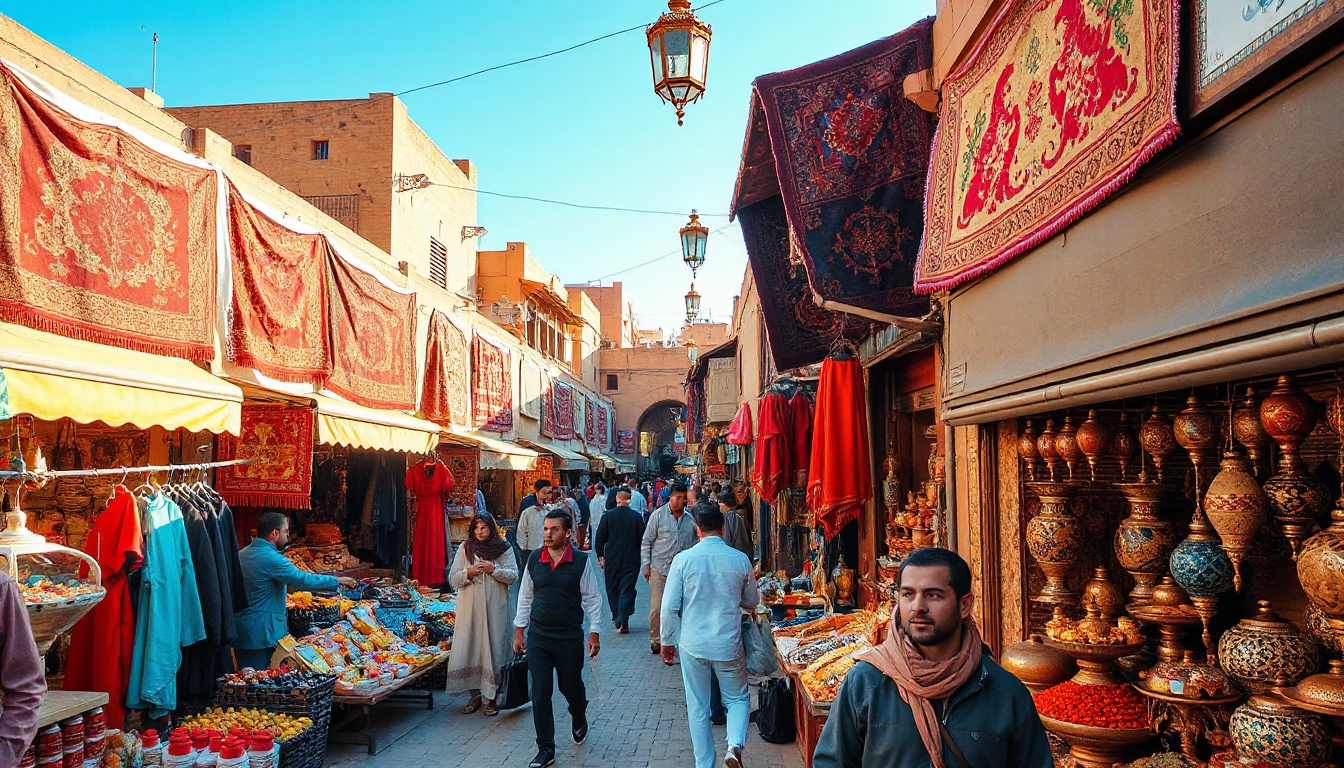The vibrant souks of the Middle East are not just markets; they are a treasury of culture, history, and community.
From the rich, aromatic scents of spices to the colorful array of handcrafted goods, wandering through these bustling marketplaces offers an authentic glimpse into the traditions of Middle Eastern life.
Whether you’re a seasoned traveler or planning your first adventure, this guide to navigating the enchanting souks will equip you with everything you need to make the most of your shopping experience.
From understanding the cultural significance of souks to mastering the art of bargaining, this article is your key to unlocking the magic of these vibrant markets.

 Travel Light
Travel Light
When exploring souks, carrying a heavy bag can be cumbersome and invite unwanted attention.
Consider the following:
• Use a crossbody bag to keep your hands free and make it easier to navigate tight spaces.
– Pack only what you need: a small wallet, a map or guide, and water—this keeps you agile and more alert to your surroundings.
### Trust Your Instincts
While the allure of bargaining and exploring is exciting, it’s crucial to listen to your instincts in crowded souks.
Here’s how:
• If a situation feels uncomfortable, don’t hesitate to remove yourself and seek a more crowded area.
• Engaging with vendors is part of the experience, but if someone is overly aggressive or makes you feel uneasy, walk away politely.
### Plan Your Visit
To enhance your safety while enjoying the authentic atmosphere of souks:
• Visit during daylight hours when it’s busier and easier to navigate.
Early mornings or late afternoons can be optimal times for exploration.
– Research the specific souks in the area, and familiarize yourself with the layout and popular routes before you visit.
### Engage with Local Customs
Understanding local customs can play a significant role in your safety:
• Learn basic phrases in the local language; this not only helps in negotiations but also shows respect to the culture.
– Adhere to cultural norms in dress and behavior to avoid drawing unnecessary attention to yourself.
### Conclusion
Navigating the vibrant, labyrinthine paths of souks can be an unforgettable adventure filled with spice markets, artisan crafts, and rich history.
By staying vigilant and following these practical tips, you can safeguard your experience while fully immersing yourself in the colorful tapestry of local commerce.
Remember, the key to enjoying the bustling ambiance of souks lies in blending excitement with caution—a balance that ensures your safety and enriches your journey!
 tour that focuses on the history and culture of the souk.
tour that focuses on the history and culture of the souk.
Local guides often share fascinating anecdotes that enhance your understanding of the marketplace.
– Interacting with Locals: Don’t miss the chance to chat with shopkeepers and visitors alike.
These interactions can provide deeper insights into the local way of life and traditions.
## Conclusion: More Than a Market
In conclusion, souks are not just shopping destinations; they are vibrant cultural epicenters that offer a plethora of experiences beyond retail.
From savoring local delicacies to appreciating exquisite crafts, the souk invites you to immerse yourself in its rich culture.
If you ever find yourself in a region known for its souks, take the time to explore everything they have to offer.
Not only will you leave with wonderful memories, but you’ll also gain a deeper appreciation for the people and traditions that make these markets so special.
Next time you visit a souk, remember: it’s not just about shopping; it’s about experiencing the heart of a culture.
Frequently Asked Questions
What are souks and why are they important in Middle Eastern culture?
Souks are traditional marketplaces found throughout the Middle East, known for their vibrant atmosphere and cultural significance.
They serve as social hubs where locals and tourists alike can experience the region’s rich history, craftsmanship, and community interactions.
What are some must-buy items when visiting a souk?
When exploring souks, look for unique items such as spices, textiles, jewelry, handcrafted ceramics, and traditional art.
Each souk may offer different specialties depending on the region, so take the time to explore and discover local treasures.
How can I effectively negotiate prices in a souk?
Bargaining is a common practice in souks.
Start by offering a price lower than what you are willing to pay and be prepared to engage in back-and-forth negotiations.
Maintaining a friendly demeanor and showing respect for the vendor can help facilitate a successful transaction.
What safety precautions should I take while visiting souks?
To stay safe in crowded souks, be aware of your surroundings, keep your belongings secure, and avoid displaying large amounts of cash or valuables.
It’s also wise to shop during daylight hours and remain in well-populated areas.
What else can I experience in a souk apart from shopping?
Souks offer a rich experience beyond shopping.
You can enjoy traditional foods from local vendors, observe artisans at work, and immerse yourself in cultural performances or events.
It’s a great opportunity to connect with the local community and learn about their customs.

